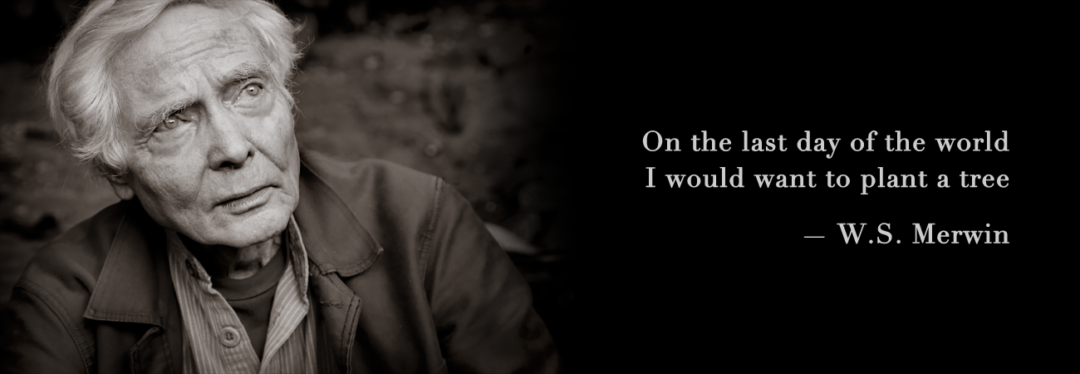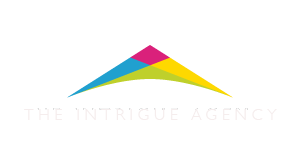"On the last day of the world, I would want to plant a tree." - W. S. Merwin Do you keep promising yourself that someday you'll make time for your creative project or something you really care about?
Please understand there will never be a right time and you'll never have more time than you have right now.
Someday is the busiest day of the week.
You might want to follow Poet W.S. Merwin's example and get serious about your passion project instead of frittering away time and talent on lesser priorities.
As Executive Director of the Maui Writers Conference, I had an opportunity to interview Merwin at our very first Presenters Reception. On a full moon night, under the palm trees on a Kapalua beach, I asked him, "What is one of the most important lessons-learned from your career?”
I'm paraphrasing here because I did not write down what he said (that’ll teach me) however the gist of his remarks was choosing to concentrate on his craft was the best decision he ever made on behalf of his career.
As the winner of a Pulitzer Prize, Merwin received dozens of invitations every week. He realized it would be oh-so easy to become part of the “glitterati” and that his work would suffer if he said yes to every request. He and his wife Paula were clear that continuing to live in NYC would mean they would continue to be surrounded by temptations that would pull him away from the work he was born to do. So, they moved to Maui to live a simpler life where he was freer to concentrate on his true priorities.
I thought, "There’s a man who knows what is important to him."
I’ve come to believe this is one of the biggest challenges we face as creatives. We are constantly torn between craft and commerce - between making art and making a living.
I've also come to understand that our environment either helps us or hurts us. If we are surrounded by distractions and demands, our dream projects may never get out the door. It is up to us to take charge of our circumstances so that, like W.S. Merwin, we can concentrate on what will matter in the long run.
Are you taking your creative contribution seriously? if you believe your work will add value, it's up to you to devote yourself to it instead of allowing yourself to waste time on lesser activities that, at the end of the day, won’t contribute to the greater good.
You may be thinking, “I agree with this in theory, but it’s tough to do in practice.”
Agreed. Which is it is so important to establish clear boundaries on what you will and won't focus on. Here are a few best-practice tips on how to do that (culled from my ConZentrate and IDEApreneur books). Hope they help you stay finish your projects and get them out in the world where they can make a positive difference for others and a prosperous living for you.
1. REDUCE time online. Many writers admit they are addicted to their digital devices. To what purpose? How much time do you spend online every day? When you look back at the end of your life, will those thousands of hours have made an enduring difference? Commit right now to policies with metrics. For example, vow to check email and social media only AFTER you finish writing instead of all day, every day. A study by MIT reveals we check our phone 140+ times a day. What a misuse of time that could and should be spent on completing higher-priority work that will have positive impact.
2. Wake and Work. Wake and Work means exactly what you think it means. Do not pass GO. Do not collect $200. Get up, grab your cup of coffee or tea, sit down and apply what Power of One author Bryce Courtenay called, "Bum glue." Tackle other tasks only after you have produced something tangible (two pages?) to show for your efforts. The Psychology of Complettion says we get a thrill of achievement and a boost in self esteem every time we finish something. And, as you know, "rewarded behavior gets repeated." So, if every time you sit down to write, you complete two new pages, you set up flow and forward momentum and feel you're making progress. This feeling of accomplishment will make you eager to come back and pick up where you left off.
3. Find your Third Place. The science of Ergonomics (the study of how our environment influences our effectiveness) says your home is your First Place and your office is your Second Place. If you work on your creative project at your home/office, that’s your First and Second Place.
Ergonomic experts say it’s almost impossible to stay focused on creative projects in your First and Second Place because your environment keeps reminding you of the laundry, bills, client work or household chores you customarily do in that space.
Your Third Place (a nearby coffee shop? local library?) is a public place where you can work in private. Working there kick-starts creativity because it 1) it socializes your work process but without the downside of being constantly interrupted by people asking you to cook dinner or find their backpack. 2) Instead of stalling because you're operating in isolation, you get to piggy-back off the energy of people in the room.
3) Does the name Pavlov ring a bell? If working on your dream project is the only thing you do in your Third Place, it sets up a repeat ritual where the faucet of flow opens up every time you walk in because THAT's what's associated with that environment. Many clients tell me their Third Place is their saving grace. It is the only time and space where they can escape their job/family responsibilities and make their creative priority their top priority.
4. Reduce accessibility. Are people constantly asking to pick your brain? Do you find it difficult to say no when someone begs for your advice, support, time, mind or dime?
Mark off time on your calendar where you devote yourself to your creative project. Set aside certain days (every Tuesday?) where you are available for public appointments and activities. And, instead of letting someone buying you lunch or a cup of coffee, go for a walk/talk so at least you're outside getting fit.
You may worry you will offend people by taking yourself off the grid. You might want to ask yourself, “Am I supporting everyone else’s priorities at the cost of my own?”
it is our responsibility to think big and to think long on our behalf of our dreams.
What is the long-term cost of being available to others 24/7? I am not suggesting we become a recluse. W.S. Merwin isn’t a hermit; he is simply selective about how often he is accessible. He balances public requests with his dedication to his legacy work, which keeps the light on in his eyes and keeps him contributing at his highest level.
How about you? How will you hold yourself accountable for focusing on what will matter in the long run ... now, not later?
Joseph Campbell said, "The big question is whether you are going to say a hearty yes to your adventure."
Remember, someday is not a day in the week. How will you say YES to your adventure? How will you NOT wait to the last day of the world to plant your tree?

- - -
Sam Horn is on a mission to help clients create a quality life-work that adds value for all involved. Her books - including POP!, Tongue Fu, IDEApreneur! and Washington Post bestseller Got Your Attention? - have been featured in New York Times, Forbes, INC and on NPR and presented to NASA, Boeing, Capital One and National Geographic. Want Sam to speak to your group? Contact Cheri@intrigueAgency.com.
